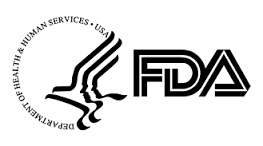FDA designates Class 1 recall for insulin syringes

Editor's Note The US Food and Drug Administration (FDA) designated Cardinal health’s recall of certain lots of the Monoject U-100 1 mL Syringe Luer-Lock with Tip Cap Soft Pack a Class 1, the most severe recall category indicating serious risk of injury or death. The product is designed to administer…
FDA Class 1 recalls target anesthesia workstations, ambulatory infusion pumps, ventilators

Editor's Note The US Food and Drug Administration (FDA) has designated Class 1 recalls—the most severe category indicating risk of serious injury or death—involving three systems: Atlan anesthesia workstations from Draeger, CADD-Solis ambulatory infusion pumps from Smiths Medical, and Trilogy Evo ventilators from Philips Respironics. FDA issued all three announcements…
Study finds high rates of preventable, adverse events in perioperative care

Editor's Note Adverse events (AEs) remain widespread in perioperative care, affecting nearly one in three patients and resulting in substantial and often preventable patient harm, according to a retrospective cohort study published November 13 in The BMJ. The study analyzed 1,009 weighted admissions from a sample of 64,121 surgical patients…
Out-of-hospital cardiac arrest survival rates lag pre-pandemic levels, racial disparities persist

Editor's Note Survival rates following out-of-hospital cardiac arrest (OHCA) have not returned to pre-pandemic levels and continue to reflect racial disparities, according to a preliminary study set for presentation at the American Heart Association’s Scientific Sessions 2024. Analyzing data from over half a million U.S. adults who experienced OHCA between…
Study: Critical care bed availability affects postoperative admission decisions, but not outcomes

Editor's Note Critical care bed availability influences whether patients are admitted to intensive care after surgery, but it does not significantly affect postoperative outcomes, according to a study published September 25 in the journal Anaesthesia. The study involved 19,491 surgical patients from 248 hospitals in the UK, Australia, and New…
FDA designates Class 1 recalls for infusion pump software, ventilator software

Editor's Note The US Food and Drug Administration (FDA) designated software-related recalls for Fresenius Kabi USA’s Iveni Infusion Systems and Philips Respironics Triology Evo ventilators as class 1, the most severe category indicating serious risk of injury or death. According to FDA’s October 1 announcement, Fresenius recalled the Ivenix Infusion…
Study: Preventing antibiotic-resistant infection surge could save millions

Editor's Note Research shows antibiotic-resistant infections could lead to 8.2 million deaths annually by 2050, representing a 75% increase from current rates, according to a September 17 article in HealthDay. Published in the Lancet, the new study highlights the growing threat of growing threat of antimicrobial resistance (AMR), predicting that…
FDA designates Class 1 recall for infusion system components

Editor's Note The US Food and Drug Administration (FDA) has designated Fresenius Kabi’s recall of certain Ivenix infusion system components as Class 1, the most severe category indicating risk of serious injury or death. According to the agency’s September 16 announcement, the recalled items consist of a certain lot (3010538)…
Study: Right-sized donor livers scarce for female cancer patients

Editor's Note A recent study in JAMA Surgery showed women with hepatocellular carcinoma (HCC) were 8% less likely than men to receive a liver transplant and 6% more likely to die or be removed from the waitlist, Healio reported September 9. The study, which analyzed 31,725 adults waitlisted for…
FDA announces Class 1 recalls for laryngoscopes, ventilators

Editor's Note Recalls of certain devices and instruction updates for others prompted the US Food and Drug Administration (FDA) to issue Class 1 recalls—the most severe category indicating risk of serious injury or death—for two groups of products: Medtronic’s McGrath MAC and MAC EMS Video Laryngoscopes and Breas Medical’s Vivo…

 Free Daily News
Free Daily News